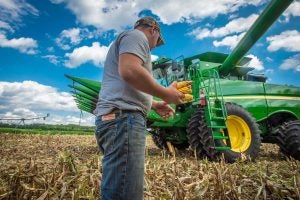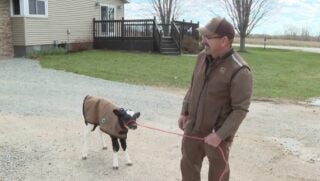Quick: What do all of these terms have in common:
Regenerative agriculture.
Industrial agriculture.
Organic agriculture.
Non-GMO agriculture.
Intensive agriculture.
Corporate agriculture.
Conventional agriculture.
Urban agriculture.
Answer: These aren’t terms farmers use regularly. Honestly, I’ve never heard a group of farmers employ these words while talking about production methods or substantive conversations. Not while getting permits and licenses. Not when negotiating contracts. Not during seminars. And not during transactions.
So why does literally everyone else use them whenever agriculture comes up?
I had this thought as I was checking my emails. Some activist organization had just released a “report” about the dangers of “industrial agriculture.” The press release promised that the content would be eye-opening and disclose all the hidden costs and disasters wrought by “industrial agriculture.” It even had social media cards that debunked the myths that “corporate agriculture” CEOs told people.
Corporate agriculture’s CEOs? What does that even mean??

I’m obviously being a bit facetious. Farmers know those terms, and they’ve used those terms. It may be in jest or in casual conversation, but they occasionally come up.
What I mean though is that farmers don’t wake up in the morning and just decide which category they fit into. They don’t make plans in the spring to choose “regenerative practices” or “intensive practices.” They don’t break out the calculator to see whether industrial farming or urban agriculture will make them more money. Unless a farm is trying to obtain organic certification (which isn’t necessarily the same as “organic farming”), these terms are just weird labels people place on what they do.
Actual conversations about how to farm have little-to-nothing to do with those words. Farmers make decisions to farm in a way that increases yields, requires less inputs, is profitable, preserves the land for future generations, produces nutritious food, fills contracts, lowers costs, builds soil health, fits with the weather, complies with regulations, and actually works. If the choices they make qualify them as one type of farming over another, they usually don’t even know or care. That’s just not the point.
Yet the rest of the world wants to understand agriculture only within those labels. It makes things more simple. Some terms are all good. Some terms are all bad. And where a particular farm fits shapes how activists, and — to some extent — the public, see it.

Here’s what I find funny: When I think about what makes a farmer good or bad, none of those terms come to mind. I care about honesty and integrity. I consider whether the farmer respects another’s crops and property. I want to know how the farmer cares for the land (especially rented land!). I value farmers who work, not just supervise. I know it’s important how a farmer treats employees.
I could’ve spent this whole article debunking the misinformation, false comparisons, and outright lies in that latest activist “report.” We all know I’ll probably do it eventually. Because I can’t just sit by and say nothing. This type of garbage fuels more public mistrust and influences lawmakers. But combatting this feels like fighting a hydra — you can cut off one head, but three more will spring up in its place.
Right now it feels more important to note the disparity between the propaganda (because, honestly, that’s what it is) and actual, everyday agriculture. Full bellies. Supported families. Robust communities. Sustainability. Whatever word you want to describe it — I prefer modern agriculture — it’s what gets the job done.
And corporate agriculture’s CEOs? I’m still waiting to find out who they are.
Amanda Zaluckyj blogs under the name The Farmer’s Daughter USA. Her goal is to promote farmers and tackle the misinformation swirling around the U.S. food industry.



